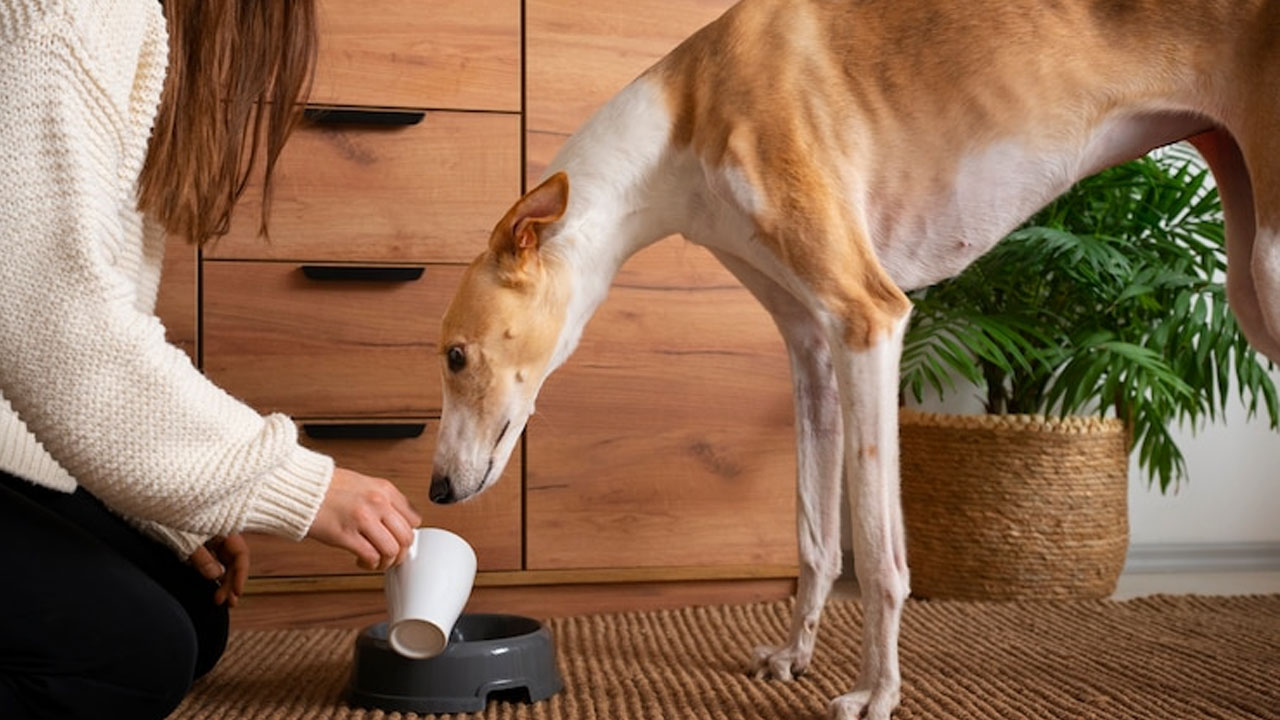
Dog owners understand that our furry companions can sometimes face health issues that leave us concerned and anxious. One such alarming occurrence is when dogs vomit white foam. This article aims to provide a detailed exploration of the potential causes, symptoms, and treatment for dog vomiting white foam. Our goal is to ensure your beloved pet receives the best care possible, allowing you to navigate this stressful situation with confidence and clarity.
Why is My Dog Vomiting White Foam?
Vomiting white foam can be unsettling, and it is crucial to understand that it can be attributed to various underlying factors. Let’s explore the common causes in detail:
1. Gastric Distress and Indigestion
Dogs often experience gastric distress due to eating something inappropriate or consuming their food too quickly. When their stomachs are empty, they might vomit white foam, which is primarily a mixture of saliva and gastric juices. This can be a sign of mild indigestion but should not be ignored if it persists.
2. Bloat (Gastric Dilatation-Volvulus)
Bloat is a serious condition where a dog’s stomach fills with gas and twists on itself, preventing the dog from expelling the gas. This is an urgent, potentially fatal condition that demands immediate veterinary intervention. Symptoms include vomiting white foam, restlessness, and an enlarged abdomen.
3. Kennel Cough
Kennel cough, a highly contagious respiratory infection, can cause dogs to cough up white foam. This condition is similar to a human cold and is common in areas where dogs are in close contact with each other, such as kennels and dog parks.
4. Pancreatitis
Pancreatitis, an inflammation of the pancreas, can lead to vomiting white foam. Dogs with pancreatitis often exhibit additional symptoms like abdominal pain, diarrhea, and lethargy. This condition requires prompt veterinary intervention.
5. Ingesting Toxins
If a dog ingests something toxic, such as household chemicals, plants, or certain foods, it can lead to vomiting white foam as the body tries to expel the harmful substance. Immediate veterinary care is essential in these cases to prevent severe health complications.
6. Parvovirus
Parvovirus is an extremely contagious and often deadly virus, particularly affecting puppies and dogs without vaccinations. Common symptoms include vomiting white foam, intense diarrhea, and extreme lethargy. Vaccination is crucial to safeguarding your pet against this devastating disease.
Veterinary Treatments for Dog Vomiting White Foam

Veterinarians will conduct various tests to determine the cause of vomiting. These may include:
- Physical Examination: Assessing the dog’s overall health and abdominal palpation.
- Blood Tests: Checking for infections, pancreatitis, and other conditions.
- X-rays/Ultrasound: Imaging to detect bloat, tumors, or foreign bodies.
- Fecal Examination: Testing for parasites and bacterial infections.
Treatment Options
Treatment will depend on the underlying cause and may include:
- Medication: Anti-nausea drugs, antibiotics, or other medications as needed.
- Fluid Therapy: To combat dehydration and maintain electrolyte balance.
- Dietary Changes: Switching to a special diet to support digestion.
- Surgery: In severe cases like bloat or ingestion of foreign objects, surgery may be required.
General Cost to Treat Dog Vomiting White Foam
When our beloved furry friends are unwell, the emotional and financial stress can be overwhelming. Understanding the general costs involved in treating a dog vomiting white foam can help ease some of the worry. Here’s a breakdown of potential expenses:
| Treatment | Estimated Cost | Details |
|---|---|---|
| Veterinary Consultation | $50 – $100 | The initial examination fee varies depending on the clinic and location. |
| Diagnostic Tests | $100 – $300 | Includes blood tests, X-rays, and ultrasounds to determine the cause of vomiting. |
| Medication | $20 – $100 per prescription | Costs for anti-nausea drugs, antibiotics, or other necessary medications. |
| Fluid Therapy | $50 – $200 | IV fluids to combat dehydration and restore electrolyte balance. |
| Special Diet | $20 – $50 per bag | A bland or prescription diet to help soothe your dog’s stomach during recovery. |
| Emergency Care | $200 – $1,000 | In cases of severe conditions like bloat or toxin ingestion, emergency treatments or surgery may be necessary. |
| Follow-Up Visits | $30 – $70 per visit | Additional consultations to monitor your dog’s progress and adjust treatments as needed. |
| Total Estimated Cost | $470 – $1,820 | The overall cost depends on the severity of the condition and the treatments required to ensure your pet’s full recovery. |
Caring for a sick pet can be challenging, but knowing the potential costs helps you prepare and ensure your dog receives the best possible care. Your love and dedication make all the difference in their recovery journey.
Dog Vomiting White Foam Treatment at Home
When your cherished dog starts vomiting white foam, it can be alarming. While professional veterinary care is essential, there are steps you can take at home to provide immediate relief:
- Withhold Food Temporarily: Give your dog’s stomach time to settle by withholding food for 12-24 hours.
- Provide Fresh Water: Ensure your dog has access to clean water to stay hydrated.
- Bland Diet: Gradually reintroduce a bland diet, like boiled chicken and rice, to soothe their stomach.
- Monitor Closely: Keep a close eye on your dog’s symptoms and behavior, noting any changes.
What to Do When Vomiting White Foam?
Seeing your furry friend vomit white foam can be distressing. Here’s what to do to help your dog feel better:
- Stay Calm: Your dog can sense your anxiety, so remain calm and reassuring.
- Assess the Situation: Check for any other symptoms like lethargy, diarrhea, or abdominal pain.
- Hydrate: Ensure your dog drinks water to prevent dehydration.
- Seek Veterinary Advice: If vomiting persists or other symptoms appear, consult your veterinarian immediately for guidance.
Senior Dog Vomiting White Foam

As our loyal companions age, their health needs change. If your senior dog is vomiting white foam, it can be particularly concerning. Here’s how to care for your senior pet:
- Gentle Care: Provide a calm and comfortable environment to reduce stress.
- Hydration: Ensure they drink plenty of water to stay hydrated.
- Bland Diet: Offer easily digestible food like boiled chicken and rice.
- Regular Vet Visits: Schedule regular check-ups to monitor their health and address any age-related issues promptly.
Your love and attention can make a significant difference in your senior dog’s well-being.
Dog vomiting white foam can be a distressing experience for both you and your pet. Understanding the potential causes, symptoms, and treatments is essential in ensuring your dog receives the best care possible. By staying informed and vigilant, you can navigate this situation with confidence and provide the comfort and care your furry friend needs.
FAQs
Can I treat my dog vomiting white foam at home?
Yes, there are initial steps you can take at home to help your dog. Withhold food for 12-24 hours, provide plenty of fresh water, and offer a bland diet like boiled chicken and rice. However, persistent vomiting or additional symptoms require professional veterinary care.
Is vomiting white foam a sign of a serious condition in dogs?
Vomiting white foam can indicate both minor and serious health issues. While it might be a simple case of indigestion, it can also be a symptom of conditions like bloat, pancreatitis, or toxin ingestion, all of which require prompt veterinary attention.
How can I prevent my dog from vomiting white foam?
Preventive measures include feeding your dog a balanced diet, ensuring they eat slowly, keeping hazardous substances out of reach, and scheduling regular veterinary check-ups. Maintaining a safe and healthy environment is key to preventing such issues.













